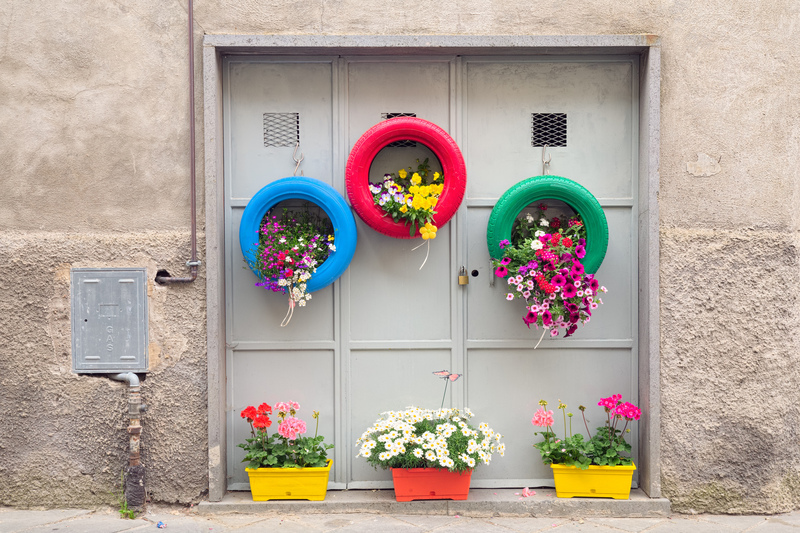Streamlining Skip Hire: Vital Dos and Don'ts
Skip hire is an essential service for effective waste management in residential, commercial, and construction projects. However, making the most out of your skip rental experience means more than just booking a bin and tossing waste inside. If you want to streamline skip hire and avoid unnecessary hassle, it's important to be aware of the essential dos and don'ts. This comprehensive guide will help you optimize your rubbish disposal with expert-backed advice and actionable tips for hassle-free skip hire.
Understanding Skip Hire: Why It Matters
Managing large volumes of waste can be challenging, whether you're renovating your home or clearing out a commercial premise. Hiring a skip provides a convenient, cost-effective solution by allowing you to collect substantial amounts of rubbish in one go, ensuring safe and legal disposal of materials.
However, to truly streamline your skip hire process, you should approach it with an informed mindset--knowing what to do, what to avoid, and how to maximize the value of your rental. The following guide details critical dos and don'ts to support a smooth, eco-friendly, and cost-effective skip hire experience.

Essential Dos of Streamlining Skip Hire
1. Do Plan Your Skip Size Carefully
Choosing the right skip size is the first step in streamlining your skip bin rental. Assess the amount and type of waste you're going to dispose of. Skips generally range from mini skips (2-4 yards) for modest clear-outs, to builders' skips (6-8 yards) for construction debris, up to large roll-on roll-off skips (20-40 yards) for industrial volumes. Book a skip that can accommodate your waste without exceeding legal height or weight limits.
- Tip: It's more cost-effective to hire one large skip than ordering several small ones. Overfilling skips can result in fines or refusals for collection.
2. Do Check Local Regulations and Permits
If your skip will be placed on a public road or pavement, you may need a council permit. Applying for a permit can take a few days, so be sure to check your local authority's rules before arranging delivery. Failure to obtain a permit could result in hefty fines and delays.
- Contact your skip hire provider--most reputable companies can handle permit applications for you.
3. Do Sort and Segregate Your Waste
Proper waste segregation enables better recycling and minimizes landfill contributions. Sort your rubbish into categories: recyclables, non-recyclables, hazardous waste, and green waste. Not only can this help you save money, but it also ensures compliance with environmental legislation. Some skip hire companies may provide separate skips for specific waste streams.
- Place recyclable materials, like metal, paper, and plastic, together for easier processing.
- Keep hazardous materials like asbestos, batteries, paint, and electrical items separate--these are usually prohibited in general skips.
4. Do Maximize Space in Your Skip
Make the best use of your skip by packing items efficiently. Break down large objects, flatten boxes, and stack materials smartly. Place heavier items at the bottom and fill gaps with smaller pieces. This approach ensures you use the full capacity of the skip without creating dangerous overhangs or exceeding weight limits.
- Tip: Distribute weight evenly to prevent the skip from becoming unbalanced, which can make collection difficult or dangerous.
5. Do Use a Reputable Skip Hire Provider
Choose a certified, fully insured skip hire company with positive customer reviews. Reliable providers will offer professional advice, clear pricing, timely delivery and collection, and transparent policies regarding prohibited items and overfilling.
- Check if the company is registered with the Environment Agency or equivalent authority.
- Read terms and conditions carefully to avoid hidden charges.
Critical Don'ts: Avoiding Common Skip Hire Pitfalls
1. Don't Overfill Your Skip
Never load your skip above the designated fill line. Overfilled skips violate safety regulations, present transportation hazards, and will often be rejected by collection drivers. If your waste exceeds the skip's capacity, arrange for an additional collection or a larger skip.
- Placing waste above the walls of the skip is illegal and unsafe.
2. Don't Put Prohibited Items in the Skip
Most skip hire companies have a clear list of banned items, including asbestos, electrical goods, tyres, batteries, chemicals, gas cylinders, and liquids. These present environmental and health risks and require special disposal procedures. Placing prohibited items in your skip can lead to fines, extra charges, or refusal of collection.
- Always consult your skip provider for a full list of prohibited waste before loading.
3. Don't Forget About Neighbours and Public Spaces
If your skip is placed on a street or close to neighbouring properties, ensure it does not block driveways, pavements, or obstruct emergency access routes. Be considerate, and inform your neighbours in advance if the skip might affect them.
- Use reflective markers or traffic cones if your skip is in a public location, especially at night.
4. Don't Ignore the Rental Timeframe
Skip hire is usually charged by the day or week. Don't exceed your agreed rental period, as this can incur costly extension fees. If you need the skip longer, notify your provider in advance--many companies are flexible if you communicate early.
- Book collection as soon as your project is complete to avoid unnecessary costs.
5. Don't Attempt to Move the Skip Yourself
Once your skip is delivered, avoid moving it on your own. Skips are heavy, and improper handling can damage property or lead to injury. Always let your provider handle repositioning, using the correct equipment.
- Moving a skip without permission can also breach insurance and permit conditions.
Maximizing Environmental Benefits of Skip Hire
Streamlining rubbish disposal isn't just about convenience or cost--it's also about environmental responsibility. Modern skip hire services are committed to recycling and ethical waste management. Here's how you can help:
- Segregate materials for recycling (e.g., metal, wood, cardboard, and plastics).
- Dispose of green waste separately to enable composting.
- Choose local skip hire services with strong environmental credentials and recycling targets.
- Enquire if the company provides detailed recycling reports for commercial skip hire projects.
By following best practices, you ensure not only efficient rubbish removal but also significant positive impact on your local environment.
Frequently Asked Questions (FAQs) About Streamlining Skip Hire
How far in advance should I book a skip?
Try to book your skip hire at least 1-2 days before you need it. If a permit is needed for placement on public land, allow an additional 2-5 days for approval.
Can I put furniture and appliances in a hired skip?
Most non-hazardous bulky items like furniture are accepted, but appliances (WEEE items: fridges, freezers, TVs, electronics) are generally prohibited in standard skips due to recycling requirements. Check with your provider for their specific guidelines.
What happens to the waste after collection?
After collection, reputable skip hire companies transport your waste to licensed processing centers. Here, it is sorted and as much as possible is recycled--typical recycling rates range from 80% to 98%. Hazardous or non-recyclable waste is disposed of safely in line with environmental law.
Can I change the delivery or collection date?
Yes, most skip rental companies offer flexible scheduling if given sufficient notice. Contact them at least 24 hours in advance if you need to change your arrangement.

Top Tips for a Smooth Skip Hire Experience
- Measure your available space: Make sure there's enough room for skip delivery and collection, with clear access for the lorry.
- Protect your driveway: If placing a skip on tarmac or paving, lay down wooden boards to prevent damage.
- Consider neighbours: Inform them when the skip is scheduled to avoid inconvenience or disputes.
- Be security conscious: Use skip covers or netting if left in public places to deter fly-tipping.
- Ask about wait-and-load: This alternative service is useful for locations where skips can't be left, allowing quick waste removal without a permit.
Conclusion: The Smart Way to Streamline Skip Hire
Efficient skip hire isn't just about removing rubbish--it's about doing so responsibly, safely, and cost-effectively. By following the dos and don'ts shared in this guide, you'll avoid common pitfalls, protect your surroundings, contribute to recycling goals, and get the best value for your investment.
Choose the right skip size, comply with local laws, pack your waste thoughtfully, and select a trusted provider. Remember: an informed approach to skip hire is key to a stress-free and environmentally positive waste management experience.
Ready to streamline your skip hire? Start by contacting a reputable skip hire company, clarify your project needs, and follow these vital guidelines for a smooth, successful outcome.
For more expert waste management tips and advice, bookmark our site and stay updated!
```